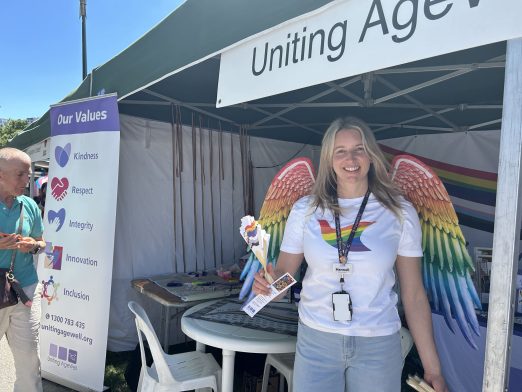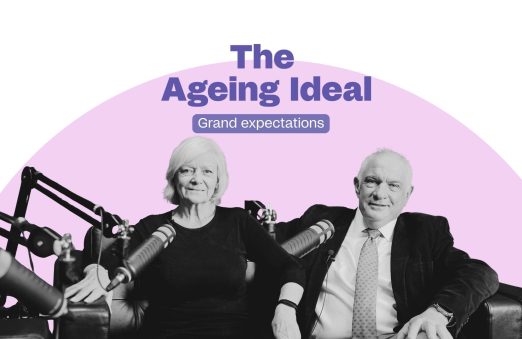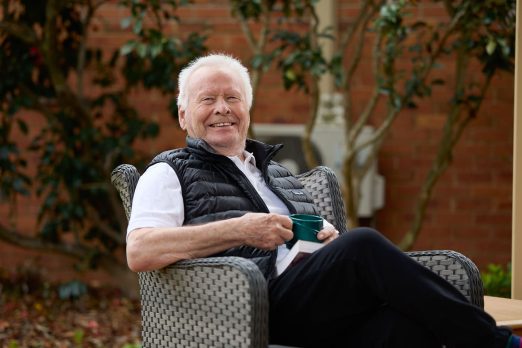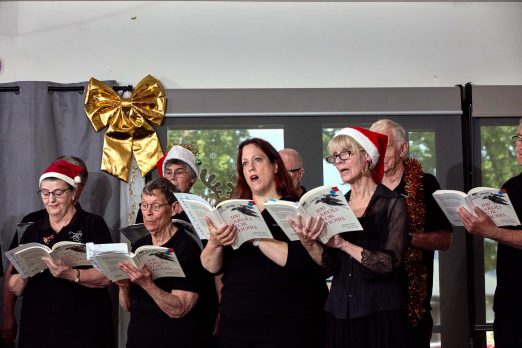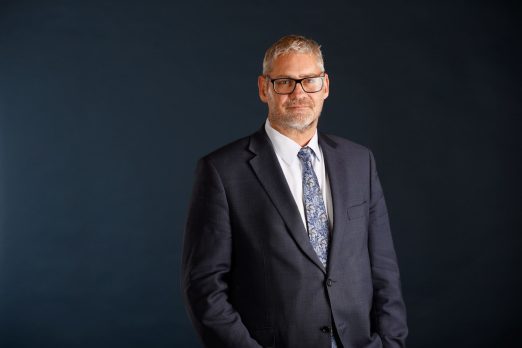News
Spiritual Care Week 2025
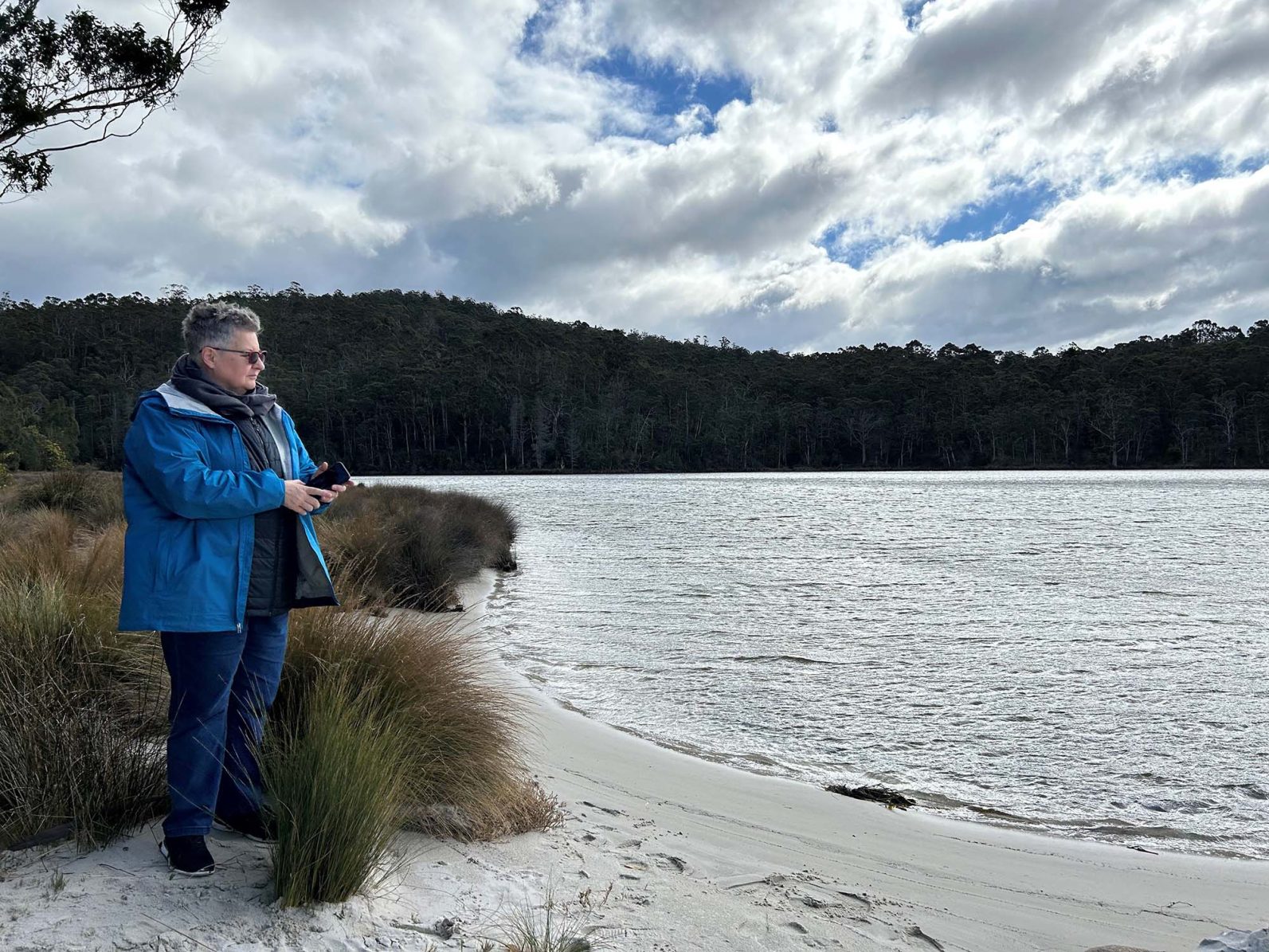
Organisational
Celebrating the transformation of spiritual over 40 years.
In 2025, the theme of International Spiritual Care Week (19 to 25 October) is “40 Years of Spiritual Support”, highlighting the significant history and widespread impact of spiritual care.
Uniting AgeWell Director of Mission, Rev Clare Brockett invites us to come on a journey with her through 40 years of spiritual and pastoral care; to recognise spiritual care has developed over time to continuously meet current spiritual needs.
Honouring Aboriginal and Torres Strait Islander Spirituality
Before we can mark 40 years of spiritual care, we need to recognise and honour the spiritual traditions of Aboriginal and Torres Strait Islander people, whose connection to Country, the ancestors, the dreamtime, cultural laws, songlines, and community, have been in existence for thousands of years.
Uniting AgeWell is committed to approaching Aboriginal and Torres Strait Islander spirituality with openness, respect, and cultural humility. We will listen deeply to elders and play our part in decolonising care, challenging Western assumptions about spirituality and work with Aboriginal and Torres Strait Islander people to ensure cultural and spiritual safety.
40 years ago: Pastoral care Rooted in Churches
Many of you will be familiar with the term pastoral care, which was the term for spiritual care and practice organised mainly through churches. Chaplains, often clergy or ministers, provided religious support, in hospitals and aged care. The focus was on religious practices of prayer, bible readings and the sacraments of baptism and holy communion. Receiving pastoral care in these settings usually came via a connection to the church.
A shift: Expanding the Meaning of Pastoral Care/Spirituality
Over time, spirituality came to include how a person made meaning, found their sense of purpose and developed connection with others and the sacred. Clinical Pastoral Education (CPE) was developed and introduced reflective, person-centred care focusing on individuals’ stories. A Multifaith awareness grew, recognising the range of spiritual needs of people from diverse religious and cultural backgrounds. We began to talk about Holistic Health and Care Models, where we embedded spiritual care into aged care, palliative care and mental health services.
A key part of this shift was spiritual care moving from the margins to the mainstream – no longer sitting predominantly in religious institutions. At the same time, spiritual care was becoming seen as a vital part of wellbeing and healing.
Today: Inclusive, Culturally Safe, and Person-Centred
Uniting AgeWell’s Spirituality Framework reflects these changes over the decades. It uses the term spirituality broadly and continues to grow in understanding about spiritual care models and safety. We have trained residential staff in spiritually informed care and plan to embed it as an online resource to continue to expand the number of staff to learn and develop skills in this area.
Education and Advocacy
There is no one path to becoming a chaplain or spiritual care practitioner and there is a major gap between the expressed needs for spiritual care and external resourcing. As Director of Mission for Uniting AgeWell, I have worked closely with the Uniting Church’s Pilgrim College and the University of Divinity to create five University papers towards a Graduate Certificate in Spiritual Care. It is hoped these will help fill a gap in training and support more people to enter the field of spiritual care. The first paper, Spiritual Care: Independent Practitioner is currently being offered, and one of UA’s chaplains is in the first intake. Several of our chaplains are involved in the broader work of spiritual care in the aged care and ministry sectors, through Spiritual Care Australia, Meaningful Ageing Australia and faith communities.
Thank you
Spiritual Care Manager Rev Ann Simons manages the team of chaplains at UA who lead the spiritual care at residential care sites, ably supported by other staff and faith leaders from the community. My deep gratitude to all of you. Thanks to the UA Board and Andrew Kinnersly for valuing and supporting spiritual care. Here’s to the next forty years!
Rev Clare Brockett
Director of Mission
